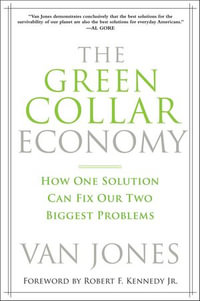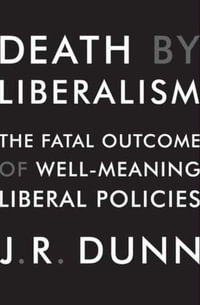
eBOOK
Who Owns the Wind?
Climate Crisis and the Hope of Renewable Energy
eBook | 12 October 2021
At a Glance
eBook
RRP $21.82
$17.99
18%OFF
Instant Digital Delivery to your Booktopia Reader App
Read on
Android
eReader
Desktop
IOS
Windows
Why the wind, and energy it produces, should not be private property
The energy transition has begun. To succeed—to replace fossil fuels with wind and solar power—that process must be fair. Otherwise, mounting popular protest against wind farms will prolong carbon pollution and deepen the climate crisis.
David McDermott Hughes examines that anti-industrial, anti-corporate resistance, drawing on his time spent conducting field research in a Spanish village surrounded by wind turbines. In the lives of a community freighted with centuries of exploitation—people whom the author comes to know intimately—clean power and social justice fit together only awkwardly. A green economy will require greater efforts to get ordinary people such as these on board. Aesthetics, livelihood, property, and, most essentially, the private nature of wind resources—all these topics must be examined with fresh eyes.
About the Author
David Hughes is a professor of Anthropology at Rutgers, the State University of New Jersey. He has written articles for Boston Review and three previous books, including Energy without Conscience. As an activist, Hughes has served as president of his faculty union and as a member of the Climate Task Force of the American Federation of Teachers.
The energy transition has begun. To succeed—to replace fossil fuels with wind and solar power—that process must be fair. Otherwise, mounting popular protest against wind farms will prolong carbon pollution and deepen the climate crisis.
David McDermott Hughes examines that anti-industrial, anti-corporate resistance, drawing on his time spent conducting field research in a Spanish village surrounded by wind turbines. In the lives of a community freighted with centuries of exploitation—people whom the author comes to know intimately—clean power and social justice fit together only awkwardly. A green economy will require greater efforts to get ordinary people such as these on board. Aesthetics, livelihood, property, and, most essentially, the private nature of wind resources—all these topics must be examined with fresh eyes.
About the Author
David Hughes is a professor of Anthropology at Rutgers, the State University of New Jersey. He has written articles for Boston Review and three previous books, including Energy without Conscience. As an activist, Hughes has served as president of his faculty union and as a member of the Climate Task Force of the American Federation of Teachers.
Industry Reviews
“David Hughes is doing some of the most innovative thinking and writing about energy democracy in the world. The movements for climate justice are in his debt.”
Naomi Klein
“No task is more crucial than building out renewable energy around the world—but it can’t happen at the speed it must unless communities embrace windmills and solar panels. And as this frank, straightforward and clarifying book makes clear that will happen only if and when we have a real stake in these assets. The author’s proposals are ambitious but also modest and logical, and they are deeply grounded in real life observation. This is a book to be reckoned with.”
Bill McKibben, author of The End of Nature
“Who Owns the Wind? shows that we will win fossil fuel abolition only if we succeed in transforming renewable power into a common resource, one that tangibly benefits and enfranchises the communities where turbines and other infrastructure is located. Hughes’s book should be required reading for all energy democracy advocates and environmental justice activists.”
Ashley Dawson, author of Extreme Cities
“David Hughes provides a nuanced and complex assessment of the perils and promises of developing renewable energy. Who Owns the Wind? is a joy to read, connecting large scale global forces with the lives and stories of individuals. This is a work full of insight, critical analysis, and even a modicum of hope.”
Richard York
Naomi Klein
“No task is more crucial than building out renewable energy around the world—but it can’t happen at the speed it must unless communities embrace windmills and solar panels. And as this frank, straightforward and clarifying book makes clear that will happen only if and when we have a real stake in these assets. The author’s proposals are ambitious but also modest and logical, and they are deeply grounded in real life observation. This is a book to be reckoned with.”
Bill McKibben, author of The End of Nature
“Who Owns the Wind? shows that we will win fossil fuel abolition only if we succeed in transforming renewable power into a common resource, one that tangibly benefits and enfranchises the communities where turbines and other infrastructure is located. Hughes’s book should be required reading for all energy democracy advocates and environmental justice activists.”
Ashley Dawson, author of Extreme Cities
“David Hughes provides a nuanced and complex assessment of the perils and promises of developing renewable energy. Who Owns the Wind? is a joy to read, connecting large scale global forces with the lives and stories of individuals. This is a work full of insight, critical analysis, and even a modicum of hope.”
Richard York
Read on
Android
eReader
Desktop
IOS
Windows
ISBN: 9781839761140
ISBN-10: 1839761148
Published: 12th October 2021
Format: ePUB
Language: English
Audience: General Adult
Publisher: Verso
You Can Find This eBook In
This product is categorised by
- Non-FictionIndustry & Industrial StudiesEnergy Industries & UtilitiesAlternative & Renewable Energy Industries
- Non-FictionSciencePhysics
- Non-FictionEarth Sciences, Geography, Environment, PlanningThe EnvironmentPollution & Threats to the EnvironmentClimate Change
- Non-FictionEarth Sciences, Geography, Environment, PlanningThe EnvironmentSustainability
- Non-FictionEconomicsDevelopment Economics & Emerging Economies
- Non-FictionPolitics & GovernmentCentral GovernmentCentral Government Policies























